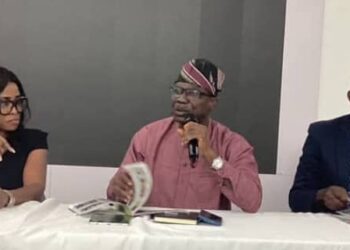The opportunity that created by the African Insurance Organisation 47th Conference and General Assembly for the federal government to address urgent national and continental issues keep revolving, at the investiture of the 47th AIO President, the Vice President Prof Yomi Osinbajo, (pictured) said African Continental Free Trade Area (AfCFTA), presents opportunities for all economy players to leverage saying there are $450bn potential income gains at stake, and Africa insurers should throw in their nets.
Theme on stage at the AIO was Rebuilding Africa’s Economy: An Insurance Perspective and this set Vice President Osinbajo, to let the continent particularly Nigeria economy players know that AfCTFA presents opportunities that would spin the economy into the way of profound rebound.
Its on record that Nigeria was the last signatory to AfCTFA but the current perspective of federal government shows it has captured the opportunities that exist in a borderless economy and Nigerian economy operators should be on the starting block including insurers, commenting that “every smart economic grouping, whether governments or businesses, must be thinking, planning and strategizing for these new times.”
From every perspective, Africa’s AfCTFA is a policy established ahead of Western current focus to curb emissions by reducing CO2 and sticking to the Paris Agreement to address climatic change. He speaks more on the paradigm shift in the west from fossil fuels to clean industry, “for Africa, there is perhaps a more significant challenge. In the past two years, the wealthier countries, after building their their own economies on fossil fuels, are now banning or restricting public investments in fossils fuels, including gas. Seven European countries, including France , Germany, and the United Kingdom, announced that they would halt public funding for certain fossil fuel projects abroad.
“Also, the World Bank and other multilateral development banks are being urged by some shareholders to do the same. The African Development Bank, for instance, is increasingly unable to support large natural gas projects. Already, some OECD based insurance companies are already commiting to reducing their commitments to carbon intensive industries by 2030.”
This line of action Osinbajo insists counters Africa’s economic rebuild insisting that African insurance companies must now speak and act differently, “You must be at the forefront of the campaign for a just and equitable transition to a low carbon future. This means that we cannot accept a defunding of gas projects when gas is an important transition fuel for us. Not just to get our people from the environmentally damaging firewood to cooking gas, and also provide much needed power for industries and domestic use.
“Africa’s economic future might really be at risk if we do not find our voices and, in unison, insist that the necessary speed to zero emissions must not mean disaster for our African economies.”
Noting what the insurance industry could do Osinbajo said, “the free trade agreement presents a major opportunity for African countries. By some estimates, if we get it right, we can bring several millions out of poverty and raise the economies of 68 million others who live on less than $5.50 per day. There are potential income gains og up to $450bn, and just cutting red tape and simplifying customs procefures alone could drive up to $250bn of that sum.”
Expecting to see the local insurers become continental players the V P said, “So what does all this mean for the insurance industry in Africa? Well, plenty of opportunities. More trade in goods will mean greater need for insurance services, brokers, in particular, should expect a boom; demand for trade facilitation services will rise, but obviously companies that already have market presence in other African countries, even if by collaboration, will benefit more than others.”
Noting the ease of setting up service companies as opposed to manufacturing Osibajo comments “Nigerian financial services companies, especially banks, are already in many African countries, the likes of Zenith, Access UBA. How about insurance companies? We should now be looking at developing homegrown international African insurance conglomerates. The time is now.”
On the issue of climatic change, Prof Osinbajo made a fixed look at the insurance industry, “how is the African insurance industry preparing for the interesting days ahead?”
Referencing a Mackenzie podcast transcript, the V P said, “it was quite eye opening. While there will obviously be opportunities for new insurance products and solutions, especially in the property and casualty segments of the business, insurance companies must also be prepared for the systematic nature of climate induced damage, with the possibilities of market failures and more system-wide destabilisation.”







































